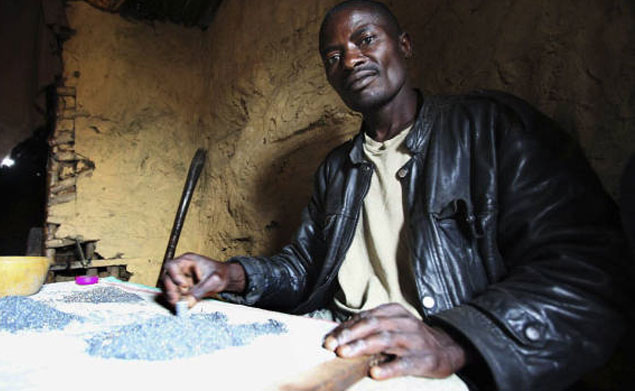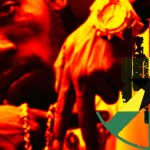
Reconciling consumerism
A week ago today i sat typing on my mac book while simultaneously scrolling through the twitter feed on my iPhone. I received an alert from one of my news apps announcing the passing of Apple founder: Steve Jobs. Pausing for a second, I glanced at the glowing apple emblem on both my phone and my laptop and thought about the Steve Jobs/Apple impact. I thought about innovation and an absurd fearlessness to create. In that pause I felt appreciation for it all — a mental toast was given to forward thinking and truly progressive invention. As I may pay homage to leaders in technological advancement, I make an effort to remain engage in other world issues. Per slot, everything in this world is connected in some respect or another
As African-Americans, there is much to reconcile down to our very name. To be African; to be American, which one wins? To be American is immediate because we live here and the distance to our motherland Africa stretches across an
ocean. So we naturally adopt American ideals and the culture of consumerism. Inherent in that consumerism is an attachment to our everyday devices that keep our social lives afloat. Our cell phones, computers, ipod shuffles and such. Sadly what often sits in the periphery or out of focus is the pain and conflict that seems continuous on the continent. This turmoil in some African nations quite possibly stemming from land disputes that supply the natural resources of our consumerism. Our brothers and sisters losing limbs and losing lives over the acquisition of such material to construct those so beloved devices. I by no means absolve myself and I write this partially to reconcile my own identity contradictions. Is there space for empathy within this vulgar materialism? Or is there an inherent personal conflict in enjoying modern technological advances upon the realization of how resources to make those products were obtained?
One could speculate as to why these stories on the orijins of political turmoil and social unrest in countries like the Democratic Republic of the Congo are not highly publicized. Perhaps it’s done to encourage this American escapism that shields us from the guilt or curbs our own emotional crisis. But oh the agony of knowing makes you guilty of just that — knowing and remaining silent.
In the Democratic Republic of the Congo there has been perpetual conflict in the recent year resulting in over 5 millions deaths. In one of the most naturally rich regions in the world there is an average monthly salary of less than $300 USD, making it the poorest country in the world. Nearly 80% of the world’s coltan reserves used in every single cell phone comes from the DR Congo meanwhile, the Congolese people starve. I am haunted by the pictures of people missing limbs–losing arms and losing their lives.
I am reminded of the collective mourning over the passing of who was deemed the modern-day Thomas Edison Steve Jobs when I watch footage from the DR Congo on the Al Jazeera website on my mac computer. I am not suggesting that
people do not grieve but yet to broaden your perspective and perhaps we can close the chasm between the comforts of our world supplied at an unmeasurable price of pain to the people of the Congolese land or in other parts of the world. Perhaps the same devices that induce the pain can be the catalyst for change. Pay attention. Do your part.

A Congolese worker separates coltan and cassiterite, or tin ore, in a mud hut at Numbi in eastern Congo. REUTERS
Laatste berichten van Mekka Abney (toon alles)
- “Did We Fail Whitney?” - Februari 15, 2012
- Het oproepen van concepten van Kadhafi :"Het is niet wat je zou verwachten" - Oktober 21, 2011
- Steve did a good “Job”, but are you losing Congo for your Cellphone? - Oktober 14, 2011



